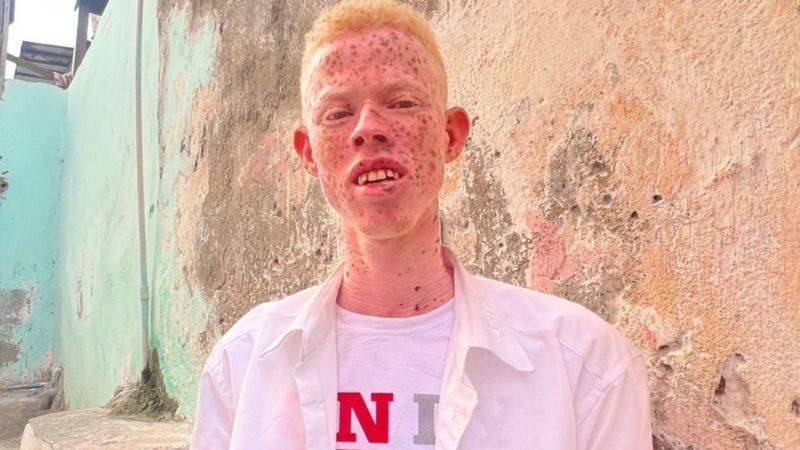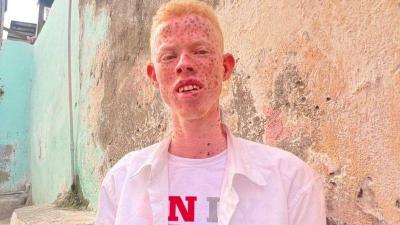Billy Mohamed, a 25-year-old affected by albinism, struggles due to his condition: "People describe me as a cannibal, saying that I will eat their children. That's why they fear me." In search of a place to live in the capital, Mogadishu, after leaving his rural home in the Hirshabelle region, he and his siblings suffer from this condition. In an interview with BBC, Mohamed shares his experiences, which close off job opportunities for him. He says, "We face constant insults and abuse from society. We have been beaten and mocked because of our pale skin, hair, and eyes." He adds, "I thought I would find a better life in Mogadishu, but I was wrong."
Mohamed searched extensively for a room in a shared house, but nobody accepted him, facing rejection everywhere. He ended up paying $30 a month to live in a storage shed in the Hamar Weyne area, which is the oldest part of the city. He states, "People think I am cursed. They often throw a mixture of saltwater and raw eggs at the entrance of the storage shed, believing this will protect them from me." Eventually, Mohamed found a job as a cleaner in a restaurant, earning between $1.40 and $4 a day. However, that was short-lived. He was fired when customers stopped eating at the restaurant, saying they feared he would cook their food, despite the fact that albinism is not a contagious disease but a genetic health condition.
Mohamed explains, "I went from restaurant to restaurant looking for another job, but no one hired me. I ended up begging on the streets, holding a sign with my phone number so people could donate to me via mobile payment." What he earned from begging was insufficient to cover his meals and rent, let alone the sunscreen and glasses he needs to protect his sensitive skin and eyes.
What do people with albinism suffer from? A BBC report clarifies that those with albinism suffer from a lack of pigment that colors the eyes, hair, and skin, providing protection from the sun, known as melanin. Mohamed states, "I cannot buy sunglasses. There is so much dust and extremely polluted traffic in the market where I beg. My eyes hurt constantly, and my vision is deteriorating rapidly." He adds, "Sometimes people give me their leftovers to eat. Other times, I have nothing."
Mohamed's dreams of escaping to Mogadishu to earn money and help his family, especially his siblings with albinism, have been shattered. The number of people with albinism living in Somalia is unknown, as there is no data. The country has been affected by conflict and instability for more than three decades, making it impossible to gather documented information. Earlier this year, about 80 families living with albinism in Mogadishu came together to form an association called "Somalis with Albinism," hoping to raise awareness about their plight and help reduce stigma. Somali women living in the diaspora have sent shipments of sunscreen to association members, with 86 containers sent so far.
It is recommended that people with albinism wear high-SPF sunscreen, protective clothing, and sunglasses to limit sun exposure. The lack of melanin in those with albinism makes them more susceptible to sunburn and skin cancer. It also leads to eye problems, as melanin is involved in developing the retina, the thin layer of cells at the back of the eye.
Mohamed Abubakar Abdul Qadir, the 40-year-old president of the group, says, "Other disabled Somali people have formed organizations seeking help from the government and international organizations. They now have rights. We do not." Abdul Qadir adds, "I was elected as president of our association because I am a fighter, and I will never give up." He is the father of six children with albinism like himself. Abdul Qadir earns a living selling dried and canned foods from a cart in the Hamar Weyne market, always wearing a hat to protect himself from harsh sun rays. He states, "The reason people hate us and fear us is ignorance."




